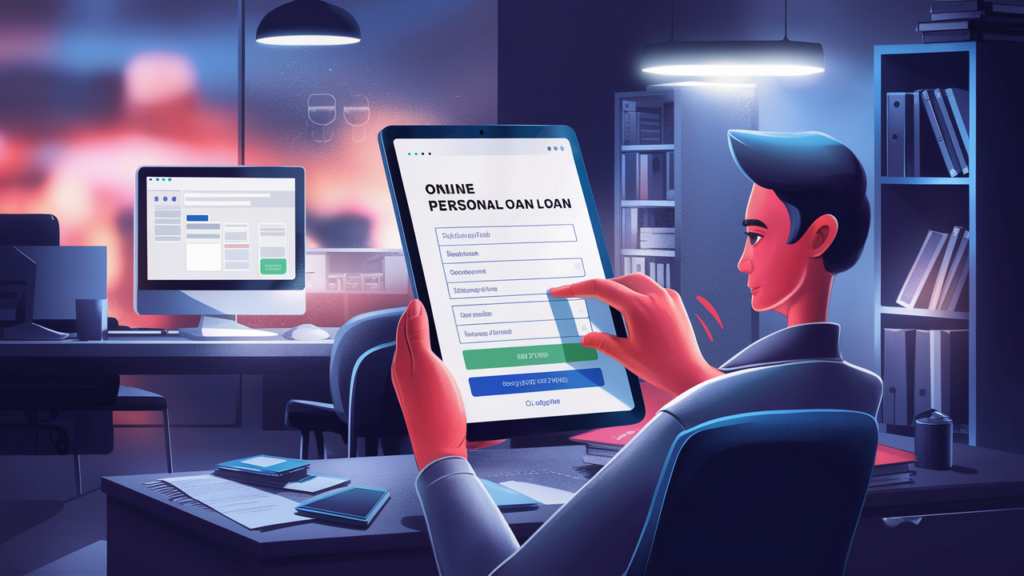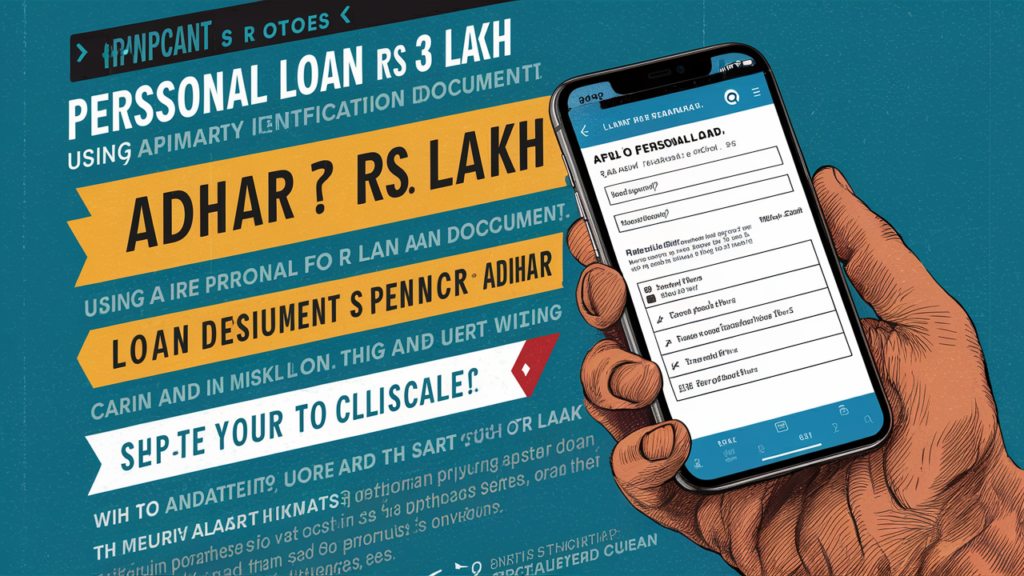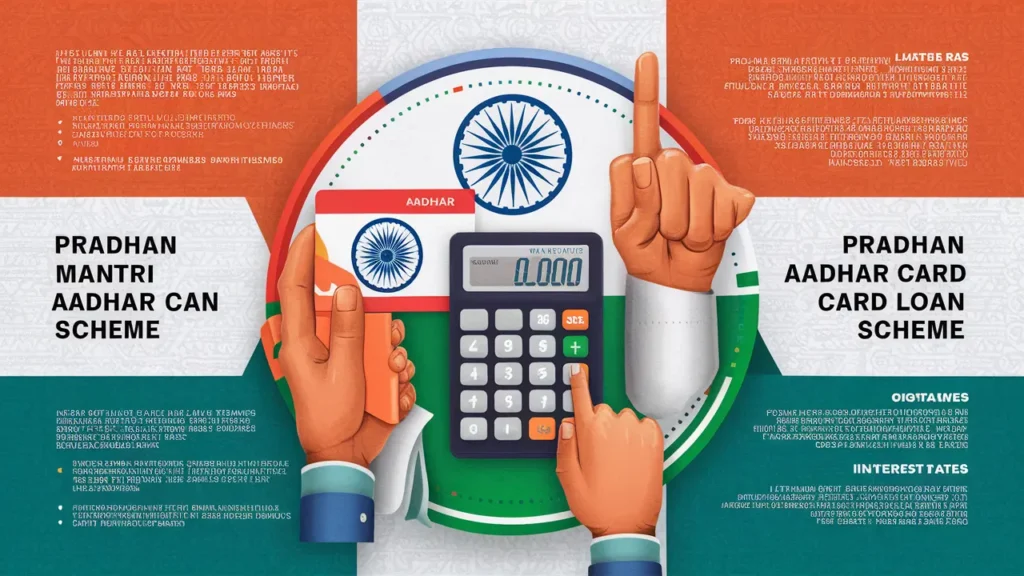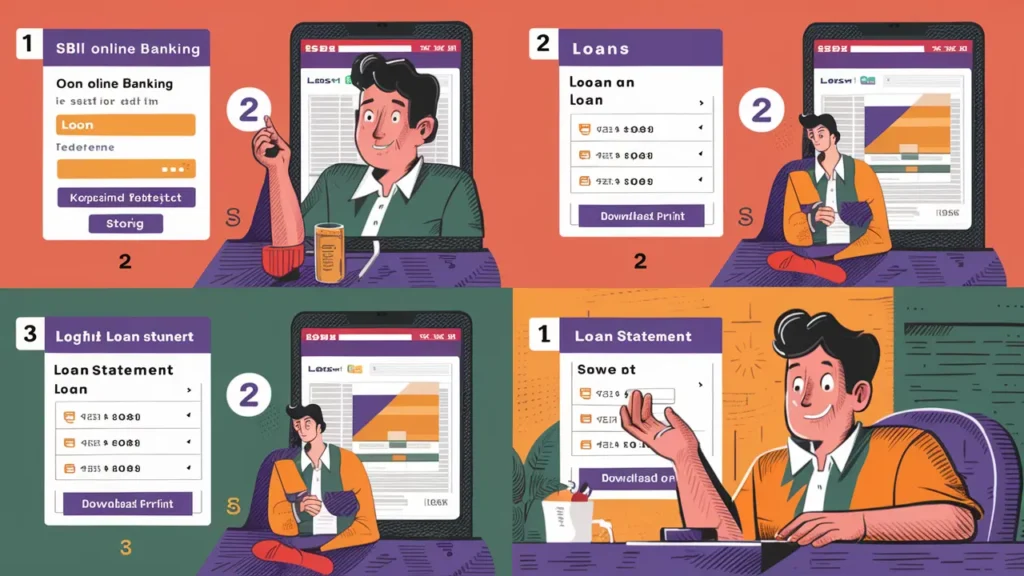Summary
Loan closures and loan settlements are two ways to finish a loan. They also have different effects on credit scores. Loan closures happen when you pay off your loan on time or pay it off early. This is a positive event on your credit report. Loan settlements occur when you cannot repay the loan in full. In this case, lenders agree to accept a lesser amount to close the account. However, loan settlements hurt your credit score and show as “settled” on your report. A loan closure indicates you have met your financial obligation.
A loan settlement can show that you faced financial trouble. This might make lenders see you as risky. You should aim for loan closure first and treat a loan settlement as a last resort due to financial issues. Both situations need proper documentation and follow-up on your credit report. Understanding the difference can help protect your finances and future borrowing ability.
Introduction
Borrowers often confuse loan settlement and loan closure, but they are very different. Understanding these terms is important for your credit score and future finances. Loan closure means you’ve fully paid off a loan, either on time or early, as agreed. This shows financial discipline and benefits your credit profile. In contrast, loan settlement occurs when a borrower can’t pay an unsecured debt. The borrower negotiates with the lender to pay a reduced amount. Ending the loan can hurt the borrower’s credit score. This shows they can’t pay. This article will explain both terms and their effects on your credit score (CIBIL). Knowing the difference can help you maintain creditworthiness and avoid long-term financial stress.
What Is the Difference Between Loan Settlement and Loan Closure?
Many people confuse loan settlement and loan closure. They often think these terms mean the same thing. But in finance, they have different meanings. Understanding this difference helps maintain a good credit score. It also prevents money issues down the line. This essay will explain the key differences between loan settlement and loan closure. It will also cover how each works and what borrowers should know.
Understanding Loan Closure
What Is Loan Closure?
Loan closure is when the borrower pays back the whole amount of the loan according to the terms and conditions that both the borrower and lender agreed upon. This means that the borrower has either paid off all of the EMIs (Equated Monthly Installments) or the total loan before the loan term ends in the case of pre-closure. The loan is paid off when the bank or lender gets the last payment. After that, they give you a “No Dues Certificate” or “Loan Closure Certificate.”
Types of Loan Closure
There are generally two types of loan closure:
Regular Closure
When a borrower pays off the loan in full by making all of their EMIs until the loan is paid off, this happens. The loan account is closed on time, with no missed payments or defaults.
Pre-closure
This happens when a borrower pays off the whole debt before the due date. Some lenders may charge a small fee for closing early, especially on personal loans.
Why it’s important to close a loan
It’s excellent for your money to pay off your loan on time or early. It indicates that you are responsible with your money, pay your bills on time, and use credit sensibly. It also helps your credit score, which makes it easier for you to receive loans or credit cards in the future. If you have a closed loan account with a strong payment history, you are more likely to get credit.
Understanding Loan Settlement
What Is Loan Settlement?
Loan settlement happens when the borrower can’t pay back the whole loan amount because of money troubles like losing a job, having a medical emergency, or something else that comes up out of the blue. In some cases, the borrower and lender talk and agree on a one-time payment that is less than the total amount outstanding. The lender decides to “settle” the debt instead of giving back the whole amount.
How Loan Settlement Works
When a borrower can’t pay back the whole amount of a loan, they ask the bank to think about a settlement. The lender looks at the situation and may agree to a smaller lump sum payment. Once this is paid, the credit report will say that the account is “Settled.”
This doesn’t mean the borrower has paid off the obligation in full, like when a loan closes. It basically means that the lender has agreed to stop trying to collect additional money and get some back.
Major Differences Between Loan Settlement and Loan Closure
Credit Score Impact
It’s excellent for your credit score to close a loan because it shows that you are paying it back on time. On the other side, paying off a debt damages your credit report. If a loan is “Settled,” it signifies that the borrower didn’t pay it back in full as promised. This could hurt your credit score a lot and make it tougher for you to receive credit in the future.
Loan Account Status
When you pay off the loan, your credit report will state that the account is “Closed.” This means that the debt has been paid off completely. When a loan is resolved, most lenders regard it as “Settled,” which is a warning sign.
Financial Consequences
When you conclude a debt, you don’t have to worry about any future obligations or penalties. You don’t have to think about that money anymore. But paying off a debt will hurt your credit score. In the future, lenders may be less willing to provide you loans or may charge you higher interest rates because they think you are a bigger risk.
Bank’s Perspective
Banks and other financial institutions view debt settlement as a loss. They alert credit bureaus about this, and it stays on your credit report for a few years. On the other hand, closing a loan signifies that the deal went smoothly and the lender and borrower have a good relationship.
When Should You Consider Loan Settlement?
You should only contemplate about loan settlement as a final resort if nothing else works. If you can’t pay back the full amount, you should only ask your lender for a settlement. Before you do this, you should think about options like changing the loan, requesting for a payment holiday, or receiving help from financial experts.
Settling a loan is not a good financial choice unless there is no other way out. It might benefit you right now, but it could be hard to fix the damage to your credit score in the long run.
How to Close a Loan the Right Way
To make sure your loan closes correctly, do the following:
- Make sure that all EMIs have been paid.
- Get a final statement from your lender.
- Pay off whatever debts you still have.
- Get a Loan Closure Certificate (NOC) or a No Objection Certificate.
- Check your credit record after 30 to 60 days to be sure the loan is marked as “Closed.”
This will help you keep your credit history clean and get lenders to trust you.
How Loan Settlement and Loan Closure Impact Your CIBIL Score
People who are managing loans or planning their financial future need to know how loan settlement and loan closure may effect their CIBIL score. Your CIBIL score is a big factor in whether or not you can acquire a loan or credit card. Your score will change in different ways depending on whether you settle a debt or close it. This article explains how each one affects your credit profile, why it matters, and what you can do to keep your credit score high.
What Is a CIBIL Score?
Before discussing loan closure and settlement effects, let’s define a CIBIL score. This three-digit number ranges from 300 to 900. It reflects your creditworthiness. It considers your credit history, repayment habits, credit utilization, and more.
A high CIBIL score indicates you are a responsible borrower. This helps you secure loans with lower interest rates. On the other hand, a low CIBIL score makes lenders see you as a higher risk. This can lead to difficulties in obtaining loans or credit later on.
Impact of Loan Closure on Your CIBIL Score
What happens when you pay off a loan?
The loan is ended when you pay back the complete amount, either by making all of your EMIs on time or by paying off the rest of the loan before the loan term finishes. This signifies that you have kept your promise to the lender about how much money you would pay back.
Positive Effect on Your Credit Score
Closing a loan is helpful for your CIBIL score because it shows that you can handle money well. You have good credit discipline if you pay your payments on time and in full. Your credit record will show the loan account as “Closed” once you have paid it off. This shows that you are taking good care of your credit.
This solid record makes lenders more likely to trust you, which means you have a better chance of getting better loan offers in the future. Paying off loans on time also lowers your total debt burden, which is beneficial for your credit usage ratio. This is one of the most essential things that goes into figuring out your CIBIL score.
How Loan Settlement Affects Your CIBIL Score
What Happens During a Loan Settlement?
When you settle a loan, you talk to the lender and agree to pay a smaller amount all at once to pay it off. This frequently happens when you can’t pay back the complete amount. The lender agrees to take less than the whole amount owed as the last payment.
Negative Impact on Your Credit Score
When you pay off a debt, your CIBIL score goes down. Your credit record will reflect the account as “Settled” instead of “Closed” if you pay off a loan for less than the full amount. This signifies that you didn’t keep your end of the loan agreement.
Lenders consider loan settlements as a warning sign since they suggest you are having difficulties with money or have not paid back a loan. This makes your credit score go down, which makes it harder to get new loans or credit cards. This bad record can stay on your credit report for a long time, which makes it tougher for you to get a loan even after the settlement.
Why Does Loan Settlement Affect Your CIBIL Score More Than Loan Closure?
The key reason why loan settlement damages your CIBIL score more than loan closure is that it makes lenders think less of you. When you close a debt, it indicates you paid back the full amount as promised. Loan settlement means that you couldn’t pay the whole amount and had to work out a deal to pay less. This makes me doubt your capacity to manage debt well.
Loan settlements may also include missed payments, defaults, or delays before the settlement agreement, all of which could lower your credit score.
How to Manage Your Credit Score After Loan Settlement or Closure
After Loan Closure
Check your credit report once you’ve paid off your loan to be sure it shows “Closed.” If you see any problems, call the lender or credit bureau to have them fixed. If you pay your bills on time and take care of your other credit accounts, your CIBIL score will stay good.
After Loan Settlement
Your credit report will show that you paid off a loan, but you can still try to improve your credit score. Quickly pay off your old debts, don’t take on new ones, and utilize your credit cards wisely. Paying your invoices on time will enhance your credit score over time.
If you can, don’t settle loans unless you have to. To keep your credit score from going down, look at other choices like restructuring or rescheduling payments instead of settlements.
Importance of Knowing the Difference for Your Financial Health
Know the difference between loan settlement and loan closure. Each affects your CIBIL score. Understanding this helps you make smart choices when facing money troubles. Debt closure is the best way to maintain or boost your credit score. Choose debt settlement only as a last resort, as it has long-term negative effects.
When you’re informed, you can secure better deals from lenders. You’ll find ways to manage your money wisely and keep your credit score high.
Step-by-Step Process for Loan Settlement and Loan Closure in India
In order to handle their debts efficiently, those who borrow money in India need to know how the loan settlement and loan closure processes work. Both of these processes will help you shut your loan account, but they accomplish it in different ways and for different reasons. Knowing what to do can help you save time, avoid confusion, and protect your credit score.
Step-by-Step Process for Loan Closure in India
Step One: Complete Your Loan Repayment
The loan closing process starts when you pay back the full amount of the loan according to the terms you agreed to. You can accomplish this by either paying off the rest of the loan amount before the end of the term or making all of your EMIs till the end of the term.
Step Two: Request a Loan Closure Statement
When you’ve paid off all of your debts, call your lender and ask for a loan closure statement or a no dues certificate. This paper demonstrates that you have paid off the debt in full.
Step Three: Pay Any Pending Charges
There could be processing fees, foreclosure fees (if the property is already in foreclosure), or other payments that are still owed. If you want to close your loan account quickly, pay these fees straight away.
Step Four: Obtain the Loan Closure Certificate
Once you pay off all of your debts, the lender will provide you a loan closure certificate or no objection certificate (NOC). This certificate shows that your loan is paid off and your account is closed.
Step Five: Look at Your Credit Report
After a few weeks, check your credit report again to be sure the loan account is still recorded as “Closed.” If there are problems, you should call your lender or the credit bureau to have them addressed.
How to Settle a Loan in India Step by Step
Step One: Talk about your money problems
When a borrower can’t pay back the whole amount of a loan, loan settlement happens. If you can’t pay your debts, phone your lender straight away and tell them what’s going on. Ask for a settlement.
Step Two: Talk about the terms of the settlement
The lender might give you one payment that is less than the total amount you owe on the loan. Try to get the best settlement amount you can based on your money circumstances.
Step Three: Pay the Settlement
Once you and the other party have agreed on the settlement amount, pay it all at once by the date you both agreed on. Get a receipt or proof of payment.
Step Four: Get a Letter of Settlement
The lender will give you a Settlement Letter after you pay, saying that the loan account is closed. This is an important document that shows the lender has consented to take a partial payment as full payment.
Step Five: Check Your Credit Report Regularly
Your credit report should show that the loan account is “Settled.” This status signifies that the loan was settled, but the whole amount was not paid off. Remember that this could lower your credit score.
Important Things to Know About Loan Settlement and Loan Closure in India
Closing your debt is the best way to end it, and it will also boost your credit history. You have to pay back the full amount and get a certificate from the lender.
debt settlement is usually your last choice when you can’t pay back the debt in full. It implies getting a reduced payment, but it can affect your credit score because it shows that you only paid half of what you owed.
In both cases, it’s very crucial to have the correct documents. After you conclude or settle your loan, always keep copies of any statements, certificates, or receipts you get.
Conclusion
It’s important to see how loan settlement and loan closure can impact your credit profile. Loan closure is better. It shows responsible borrowing and can help rebuild your CIBIL score. Loan settlement should be a last resort. It signals to creditors that you pose a credit risk.
Both options end your loan, but they send different messages to lenders. Loan closure builds trust. It gives lenders and NBFCs a chance to form credit relationships with you. This can lead to better interest rates and loan options. In contrast, loan settlement indicates risk. This risk may cause lenders to deny future loans.
If you must settle, aim to repay debts in full whenever possible. Always keep loan documents like No Dues Certificates or Settlement Letters. Examine your credit report for accuracy on a consistent basis. Making smart choices without credit issues will boost your confidence over time.
FAQ’s
Settling a debt involves paying back less than the whole amount because the borrower is having trouble making ends meet. debt closure means paying back the full amount.
Yes, settling a loan hurts your credit score and is listed as “Settled” on your credit report.
Get a Loan Closure Certificate or NOC to close the loan. Get a Settlement Letter from the lender to settle.
Closing a loan is always better because it indicates that you are responsible with your money and raises your credit score, whereas settlement reduces it.













